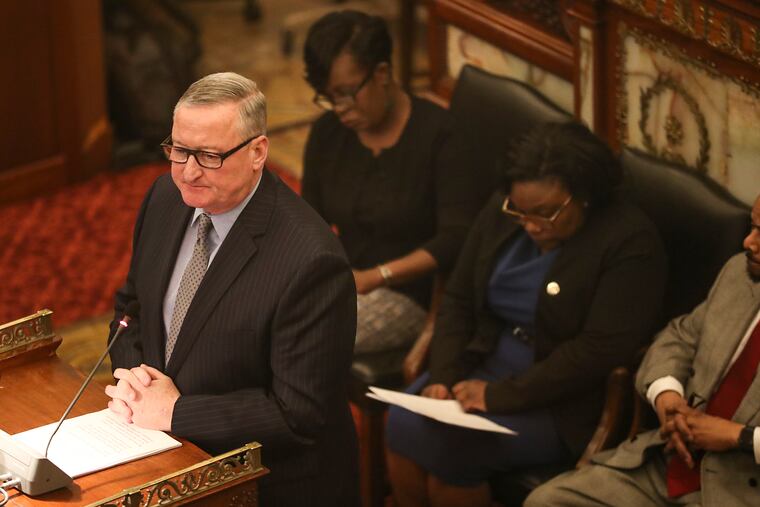Mayor Kenney has squandered Philadelphia’s fiscal boom years | Opinion
Where did the money go?

One of the most famous stories of our civilization is that of Joseph. Sold into servitude by his jealous brothers, Joseph eventually rose from jail to become the Chancellor of Ancient Egypt, and ruled wisely. One given example of his sagacity is Joseph’s decision to save grain from Egypt’s years of plenty in silos, in order to feed the people during years of drought. This basic principle -- to use unexpected bounty wisely, in order to thrive even in difficult times -- is a lesson taught to nearly half the children in the world, as it is an important story in Jewish, Christian, and Islamic traditions. You would think that during his 17 years of Catholic education, someone might have bothered to tell this story to Jim Kenney.
Since his inauguration as Philadelphia's Mayor in 2016, Kenney has shown the antithesis of Joseph’s wise and prudent leadership. Unlike his predecessor, Michael Nutter, who took power amid a global economic crash, Kenney governed Philadelphia during its years of plenty. Thanks to the consistent growth in the national economy, Philadelphia was able to collect more and more tax revenue every year. In 2018, the Philadelphia Inquirer reported that our city’s surplus was an astounding $789 million. For a city that spent roughly $3.9 billion during Nutter’s last budget, this sum represented a potentially transformative windfall.
For once in a generation, Philadelphia had choices available. We could have cut some of our onerous taxes, or improved services for Philadelphia’s people, many of which have been neglected for years. We’re all familiar with need at the Philadelphia School District, our pot-riddled streets, and our just barely treading water public transit system. Yet for those who looked to Kenney to be the progressive champion of our working-class neighborhoods, it is fair to ask: has his additional spending achieved those goals?
How could we spend so much more money on the School District, and still need to close two schools because of hazardous levels of asbestos last fall? In both 2015 and 2019, Jim Kenney ran on reinstituting street cleaning, a service provided by nearly every city and suburb in the developed world, but somehow too difficult and expensive for our city. Was $800 million a year really too little money to bring that back? Murder and shootings are also on the rise in Kenney’s Philadelphia, and while police overtime is up, our clearance rate is down. So, grieving families rarely even get the name of a suspect, let alone the closure that comes with a criminal conviction and justice being served.
So where did the money go?
Wages, primarily. Under Mayor Kenney, hiring has increased, the use of overtime has expanded, and nearly all city employees have received raises. Kenney’s defenders paint these moves as necessary steps to combat the “austerity” of the Nutter years, but if this is truly the case, why do relatively simple tasks in urban governance seem so difficult for the Kenney administration to accomplish? If more spending on public sector compensation doesn’t lead to safer streets, a cleaner city, and hazard-free schools, what exactly is the point?
So not only has Mayor Kenney squandered years of surpluses, he has very little to show for it. Even wage gains for city employees come at the risk of an impending fiscal crunch that threatens to reverse them. In the wake of the global pandemic and attending recession, it is likely that layoffs, pension cuts, and wage freezes are all coming soon.
Typically, profligate leaders do not have to deal with the consequences of their own wastefulness. This duty is usually placed on their successors. In the case of Jim Kenney, coronavirus has changed this equation. With the majority of his second term ahead of him, it will fall to Kenney himself to find new ways to squeeze more money out of Philadelphia’s beleaguered tax base and make cuts to city services in order to balance the books.
Dan Pearson is a South Philadelphia based urban policy enthusiast, political activist, and dad. He originally wrote this for Broad + Liberty. @DanPearson266